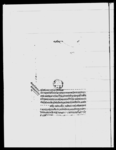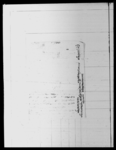A rukkā from King Rājendra ordering landowners and office holders throughout the kingdom to submit gifts, payments and tributes through Raṅganātha Pauḍyāla (VS 1894)
ID: DNA_0011_0106
Edited and
translated by Simon Cubelic
in collaboration with
Rajan Khatiwoda
Created: 2017-03-29;
Last modified: 2018-06-20
For the metadata of the document, click here
The accompanying edition, translation/synopsis and/or commentary are available under the terms of the Creative Commons Attribution-ShareAlike 4.0 International License
Abstract
In this missive King Rājendra orders landowners and office holders throughout the kingdom to henceforth submit gifts, payments and tributes for the mukhtiyāra and the bhāradāras through Raṅganātha Pauḍyāla.Diplomatic edition
[1r]
1श्रीदुर्गाज्यू\1१८८1⟪३९⟫1श्रीगुरुपंण्डितराज2श्रीरंगनाथपण्डित
3ज्यू ¯ ¯ ¯ ¯ ¯ ¯ ¯ ¯ ¯ ¯ ¯1स्वस्तिश्रीमन्महाराजाधिराजकस्यरुक्का ¯ ¯ ¯ ¯ ¯ ¯ ¯ ¯ ¯ ¯ ¯
2आगेमहाकालीपूर्वमेचीपश्चिमभरपाहाडजगाजगाकाईजारादारतहसील्दार
3रकमीअमालीद्वार्याथरीमिझारगौरुंभलामानीसगैह्रप्रतिपरापुर्वदेषितिह्मे
4रुलेमुषत्यारभारादारहरुलाईनजरनजरानादैदस्तुर•सर्सलामीनगदजि
5नीस्जोदीआयाकोछसोहिवमोजीम्कतीनघटाईजस्ताकोतस्तोअवप्रांत
6 ¯ ¯ ¯ ¯ ¯ मार्फत्•दाषीलगर्न्यागर•जसलेढाटिदवाईअघिकामुषत्या
7रभारादारलाईदीयावमोजीम्सर्सलामीनजरनजरानादैदस्तुरदाषीलग
8रौनसोअप्सरियाहोलाईतिसम्वत्१८९४सालमितिमार्गशुदी१०रो
9ज५शुभम् ¯ ¯ ¯ ¯ ¯
[1v]
1मार्फत्फत्त्यजङ्गसाहमाफतश्रीविष्णुपंडितराजमार्फत्करवीरपांडे2मार्फत्तारानाथअर्ज्याल्मार्फत्रणजोरथापा
3मार्फत्दल्भञ्जनपांडेमार्फत्कुलमानसिंहवस्न्य्यात्
Translation
[1r]
Venerable Durgājyū
1881
392
Venerable Guru Paṇḍitarāja, the Venerable Raṅganātha Paṇḍitajyū3
Hail! [This is] a missive (rukkā) of the supreme king of the great kings.
Āge: To the ijārādāras, tahasīladāras, rakamīs, amālīs, dvāryās, tharīs, mijhāras, gauruṅs and local notables (bhalā mānisa) and so forth from all places east of the Mahākālī and west of the Mecī [River] and of the entire foothills (pāhāḍa). Whatever you have given to the mukhtiyāra and the bhāradāras from very early times on as honorary gifts (najaranajarānā), customary fees (daidastura) [or] levies (sarsalāmī), [whether] in cash (nagada) or kind (jinīs), deposit from now on—at that same [rate], without decreasing them [even] a little [but leaving them] as they were—through [Venerable Guru Paṇḍitarāja, the Venerable Raṅganātha Paṇḍitajyū]. Whoever through falsehood or concealment does not deposit the levies, honorary gifts or customary fees in accordance with what has been given to former mukhtiyāras and bhāradāras will be [considered] a rebel (apsariyā).
Thursday, the 10th of the bright fortnight of Mārga of the [Vikrama] era year 1894 (1837 CE). Auspiciousness.
Through (mārphat) Phattyajaṅga Śāha, through Venerable Viṣṇu Paṇḍitarāja, through Karavīra Pā̃ḍe, through Tārānātha Arjyāl, through Raṇajora Thāpā, through Dalbhañjana Pā̃ḍe, through Kulamāna Siṃha Basnyāt.
Commentary
This missive reflects changes in the mukhtiyāra-ship that took place in 1837. After the fall of Bhīmasena Thāpā in July 1837—a result of him being accused of poisoning Prince Devendra—he was first replaced by Raṇajaṅga Pā̃ḍe, and in December 1837 by the royal preceptor, Raṅganātha Pauḍyāla (Stiller 1976: 275–276; Whelpton 1991: 52–55). However, only a couple of months later, Raṅganātha had to resign from his post, one reason being his unpopularity among the troops following reforms to the military including proposed cuts in emoluments (cf. Stiller 1976: 277).


